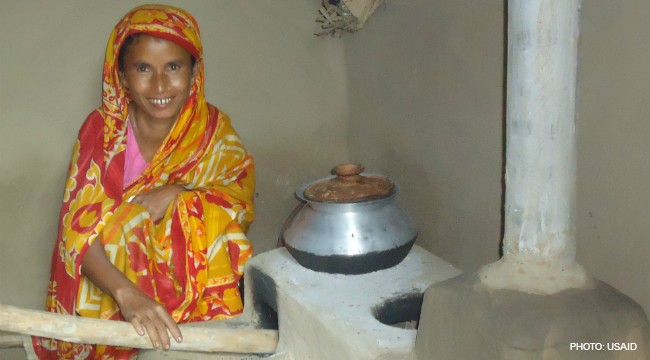
Bangladesh has made great strides in expanding its power distribution network, but with an ever-growing population, the country can only produce about two-thirds of its electricity demand. While plans to boost energy production will increase greenhouse gas emission, Bangladesh is the first country to sign a memorandum of understanding with the U.S. Government under the “Enhancing Capacity for Low Emission Development Strategies” initiative.
USAID promotes improved efficiency in energy generation, bolster regulation of emissions, and expand the use of clean and renewable sources of energy, including solar and wind power. We also partner with the Global Alliance for Clean Cookstoves to introduce more energy efficient cook-stoves that produce significantly less pollution.
Through the South Asia Regional Initiative for Energy Integration program, USAID has also been promoting regional energy cooperation since 2001. Over the years, the partnership has built up an extensive network and has identified potential power transmission connections between the countries of the region. Bangladesh and India established one such linkage in 2013, from which Bangladesh is now importing 500 megawatts of electricity.
In 2015, USAID programs in Bangladesh:
- Promoted clean cook-stoves, resulting in sales of more than 21,000 units and, in the process, reducing carbon dioxide equivalent greenhouse gas emissions by more than 43,000 metric tons.
- Partnered with the U.S. Department of Energy’s National Renewable Energy Laboratory to install five meteorological towers to assess Bangladesh’s potential to harness wind power. .








Comment
Make a general inquiry or suggest an improvement.